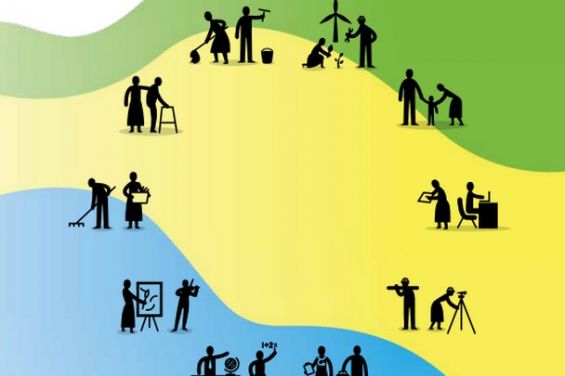The United Nations Development Programme (UNDP) released its Human Development Report 2022, “Uncertain Times, Disrupted Lives: Shaping Our Future in a Changing World,” in New York on Thursday, 8 September 2022. An opportunity for UNDP to warn of crises that impede progress.
Multiple crises are holding back progress at a time when 9 out of 10 countries are falling back on human development, warns a UNDP report entitled “Uncertain Times, Disrupted Lives: Shaping Our Future in a Changing World”. According to the press release issued Thursday, September 8, 2022, as part of the launch of the report, the world must break out of its inertia to ensure the future of people and the planet by relaunching its development trajectory. The world is flickering from crisis to crisis, trapped in a cycle of firefighting and unable to tackle the root causes of the problems we face. Without a radical change of course, we risk having to endure even more deprivation and injustice, warns the United Nations Development Programme (UNDP).
The latest Human Development Report, “Uncertain Times, Disrupted Lives: Shaping Our Future in a Changing World”, launched by UNDP, indicates that a set of uncertainties accumulate and interact to disrupt life in a new way. The past two years have had a devastating impact on billions of people around the world, as crises like COVID-19 and the war in Ukraine have followed one another and interacted with radical social and economic changes, dangerous global changes and worsening polarization.
For the first time in 32 years that UNDP has compiled the Human Development Index (HDI), which measures a nation’s health, education and standard of living, the HDI has declined globally for two consecutive years. Human development has fallen back to 2016 levels, reversing much of the progress towards the Sustainable Development Goals.
The reversal is almost universal, with more than 90 per cent of countries registering a decline in their HDI in 2020 or 2021 and more than 40 per cent seeing their score drop in those two years, indicating that the crisis continues to worsen for many.
As some countries begin to recover, the recovery is uneven and partial, further widening inequalities in human development. Latin America, the Caribbean, sub-Saharan Africa and South Asia were particularly affected.
“The world is seeking in every way to respond to consecutive crises. We have seen with the cost of living and the energy crises that, while it is tempting to find quick solutions such as fossil fuel subsidies, immediate relief tactics delay the long-term systemic changes we need to make, ”says Achim Steiner, UNDP Administrator. “We are collectively paralysed by these changes. In a world defined by uncertainty, we need a renewed sense of global solidarity to meet our common and interconnected challenges. »
The report examines the reasons why the necessary change is not taking place and suggests that there are many reasons for it, including how insecurity and polarization feed each other today to undermine the solidarity and collective action we need to address crises at all levels. New calculations show, for example, that those who feel less secure are also more likely to have extreme political opinions.
“Even before COVID-19 hit, we witnessed the double paradox of progress associated with insecurity and polarization. Today, with one-third of the world’s people feeling stressed and less than one-third of the world’s people trusting others, we are facing major obstacles to adopting policies that work for people and the planet, ”says Achim Steiner. “This exciting new analysis aims to help us break this deadlock and follow a new path that will put an end to these current global uncertainties. We have a narrow niche to relaunch our systems and ensure a future based on decisive climate action and new opportunities for all. »
To chart a new course, the report recommends the implementation of policies focused on investing in renewable energy for pandemic preparedness and oninsurance, including social protection, which will prepare our societies for the vagaries of an uncertain world. At the same time, innovation in its many forms (technological, economic, cultural) can also build capacity to respond to future challenges. “To overcome uncertainty, we need to redouble our human development efforts beyond improving people’s wealth or health,” says Pedro Conceição of UNDP, the lead author of the report. « These are of course important. But we also need to protect the planet and provide people with the tools they need to feel safer, take back control of their lives and keep hope in the future. » In addition, for more information on the Human Development Report 2022 and the UNDP analysis of how to navigate this new set of uncertainties, visit https://hdr.undp.org/human-development-report-2021-22.
Adapted and Translated from French into English by:
LMS TEAM
www.lmsgroupafrica.com
References:



